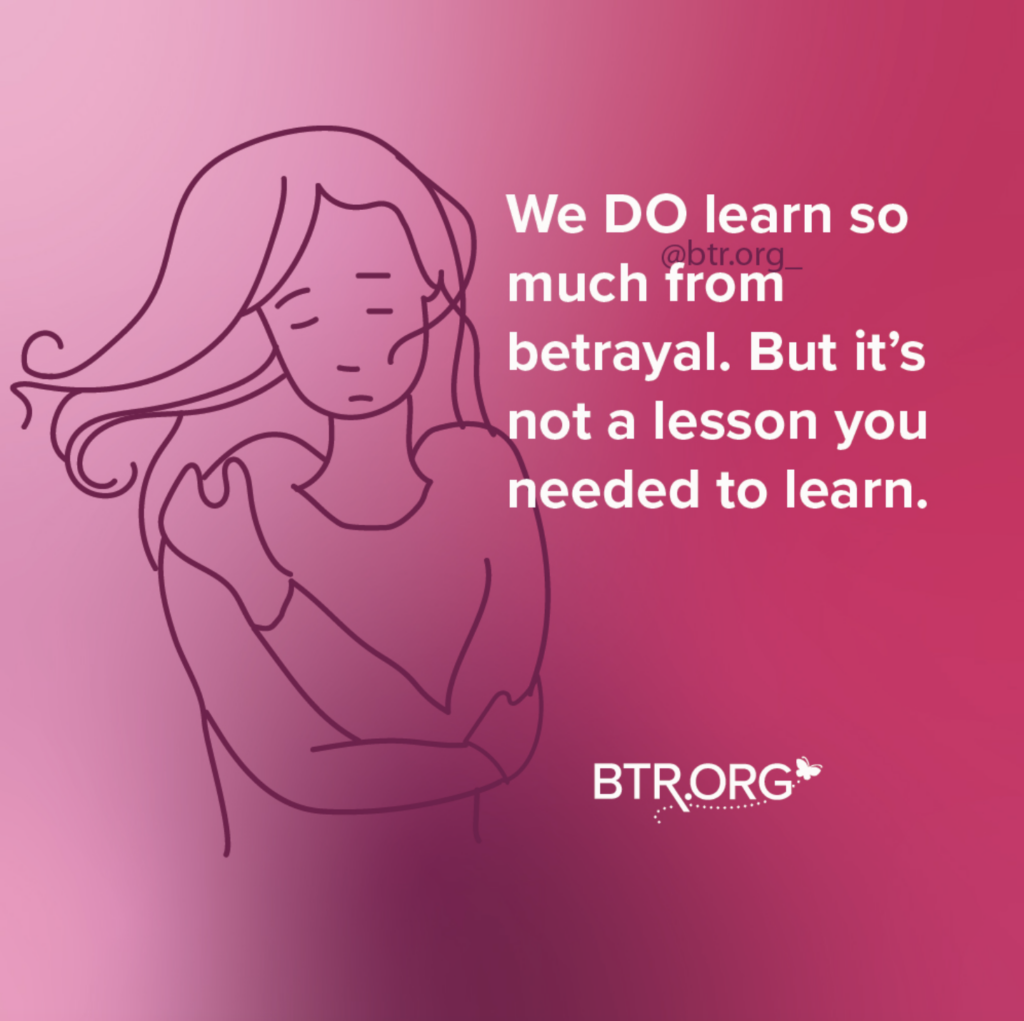Are you the family member, friend, clergy, or therapist of a victim of betrayal? Here are 7 ways to support betrayal victims.
If you or someone you love needs more support, learn about our Betrayal Trauma Recovery Support Group.
BTR.ORG is dedicated to helping you be a validating source of support to the courageous Shero in your life. Here’s one victim’s experience.
1. Support Betrayal Victims By Accepting Reality
When family, friends, and others minimize, deny, or “silver-line” reality, they are harming victims. Accepting reality, and voicing that acceptance, is a powerful way to support victims.
Phrases like:
- He abused and betrayed you
- You are a victim of abuse
- I want to support you
- None of this is your fault
- This is a serious situation
- I believe you
- I stand fully with you
- I am on your side
Are powerful ways of both accepting reality and showing solidarity with the victim.
When Sadie discovered her husband had been lying to her about an affair, her world shattered. The pain and disbelief were overwhelming, but her closest friends and family rallied around her, helping her face the painful reality instead of denying it.

2. Support Betrayal Victims By Supporting Their Boundaries
A pivotal moment in every victim’s story is the moment she begins setting and internalizing her boundaries. When you fully support her in her boundaries, you empower her to stay strong in her own power. You can support her boundaries by asking her questions like:
- “How can I support you in holding your safety boundaries?”
- “Is there anything I’m doing that is making you feel unsafe or insecure?”
- “Can I help you hold your boundaries?”
- “Is there anything I can do to reassure you that I fully support your boundaries?”
Sadie needed time to process the betrayal and figure out her next steps. Her support system respected her need for space and didn’t pressure her to make decisions quickly. They respected her boundaries, whether it was declining invitations to social gatherings or needing to be alone.
The Living Free Workshop is a tool to learn how to set boundaries with an abusive person.
3. Support Betrayal Victims By Understanding That Healing Takes Time
When victims feel rushed into healing, they may isolate themselves or feel ashamed.
You can offer incredible amounts of support by understanding that healing takes time. Continuous, unrelenting, compassionate support over long periods is an invaluable way to support victims of betrayal.
4. Support Victims By Allowing Them To Be Vulnerable With You
Sadie found solace in being able to be vulnerable with her closest friends. They created a safe space where she could cry, vent, and express her fears without feeling judged or pitied. This vulnerability was a crucial part of her healing process.
5. Support Victims Because Seeking Safety Is Hard
Sadie decided to leave her husband to seek safety and start anew. This decision was incredibly difficult, but her friends and family provided the emotional and logistical support she needed. They helped her find a new place to live, offered financial assistance, and were there for her every step of the way.
6. Support Victims By Supporting Their Children
Sadie’s children were also deeply affected by the betrayal. Her friends and family extended their support to her kids, offering them stability and understanding during this tumultuous time. This support helped Sadie focus on her healing, knowing her children were being cared for and loved.
7. Support From BTR Group Sessions
Throughout her journey, Sadie found additional strength and guidance from the BTR Coaches in daily, Group Sessions. Podcast, which provided insights and stories from others who faced similar betrayals. This resource became a valuable part of her support network, giving her hope and practical advice as she rebuilt her life.


Thank you for the resources, living with this pain has been excruciating.